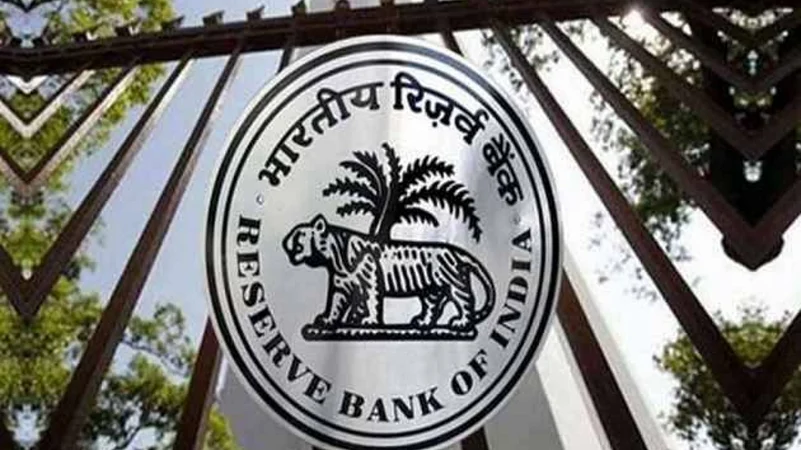The Reserve Bank of India (RBI) has imposed stringent action against New India Co-operative Bank due to financial irregularities, heavily affecting account holders and depositors. The central bank has imposed financial curbs, overruled the board for 12 months, and appointed an administrator. Mumbai Police's Economic Offences Wing (EOW) has also found a Rs 122 crore fraud by the bank's erstwhile general manager (GM), Hitesh Mehta, who has been arrested.
RBI Curbs on New India Co-operative Bank
The authorities found major financial irregularities in the bank's lending business. After the investigation, RBI directed curbs on its operations. From the end of business hours on February 13, 2025, the bank is prohibited from making or extending loans and advances without RBI's advance approval.
The RBI instruction bars the bank from investing, taking liabilities in the form of borrowing money or accepting new deposits, or making payments for liabilities or obligations. The bank cannot also sell, transfer, or dispose of its assets other than under the terms indicated by the central bank.
The RBI pointed out the liquidity concern of the bank, and so the withdrawals from savings, current, and other deposit accounts have been frozen. Depositors holding outstanding loans are, however, allowed to set them off against their deposits subject to certain conditions. The RBI said these steps were taken in order to safeguard depositors and respond to regulatory issues arising due to recent events.
Effect on Account Holders and Depositors
1. No Access to Deposits, Withdrawals Frozen
The RBI has temporarily suspended withdrawals in all types of accounts, like savings as well as current accounts, by prohibiting depositors from withdrawing funds from bank counters or ATMs. These would be suspended for six months in abeyance, subject to further examination. This has pushed many depositors into hardship, especially those who depend on accounts for routine household expenses, transactions of businesses and emergency purposes.
Most self-employed individuals and small business owners, who rely on liquidity for their businesses, are now caught in a difficult situation. Salaried employees who get their paychecks in these accounts are also hit, as they cannot access their wages. The financial instability has prompted the majority to look for alternative banking options, including the opening of new accounts in other banks for processing their transactions.
Account holders are also not allowed to invest, take on liabilities, or accept fresh deposits. Further, the bank is not allowed to enter into settlements or arrangements concerning its financial transactions without the approval of RBI. This has caused frustration to customers, with some complaining about not being able to get a clear word from bank authorities regarding the status of their money.
2. Up to Rs 5 Lakh Deposit Insurance Coverage
As a relief effort, up to Rs 5 lakh can be claimed by the depositors in terms of Deposit Insurance and Credit Guarantee Corporation (DICGC) cover. Through this cover, the entire amount is guaranteed for nearly 90 per cent of 1.3 lakh depositors of the bank as long as they provide due forms of willingness and undergo the requisite verification. It will all be done according to the provisions of the DICGC Act, 1961.
Nevertheless, despite this safety net, some of the depositors with big balances are worried about the future of their leftover funds. Those with deposits over the insured limit have to wait for news on the bank's financial situation and possible restructuring or resolution actions. Doubt hangs in the air as to how long it will take before the bank stabilizes and if larger depositors will get the entire amount of their savings back.
3. Monitoring Claims and Communication Issues
Customers are encouraged to monitor their claims online on the DICGC website. Yet, some of them complained that the bank not communicating enough with them, such that they do not know when they will be able to access their money.
In the meantime, the RBI permitted the bank to operate in a limited capacity. Necessary expenses like staff salaries, rent, and electricity bills are allowed subject to certain conditions. The central bank will keep the bank's financial situation under close watch and is likely to amend its instructions in accordance with the circumstances.
Legal Action Against Former GM
The bank's erstwhile GM, Hitesh Mehta, is the key accused in the fraud case. He was interrogated for more than three hours by the Economic Offences Wing before he was arrested. He is likely to be produced in a local court shortly as probes go on.
The RBI’s action underscores its commitment to safeguarding depositor interests and maintaining stability in the banking sector. While the immediate restrictions pose challenges for account holders, deposit insurance offers some relief to affected customers. The bank’s financial health will be reviewed over the coming months, and further decisions will be taken based on its recovery progress.











